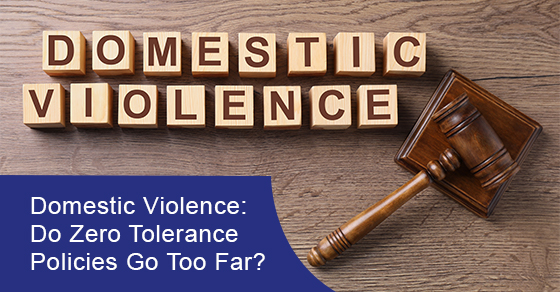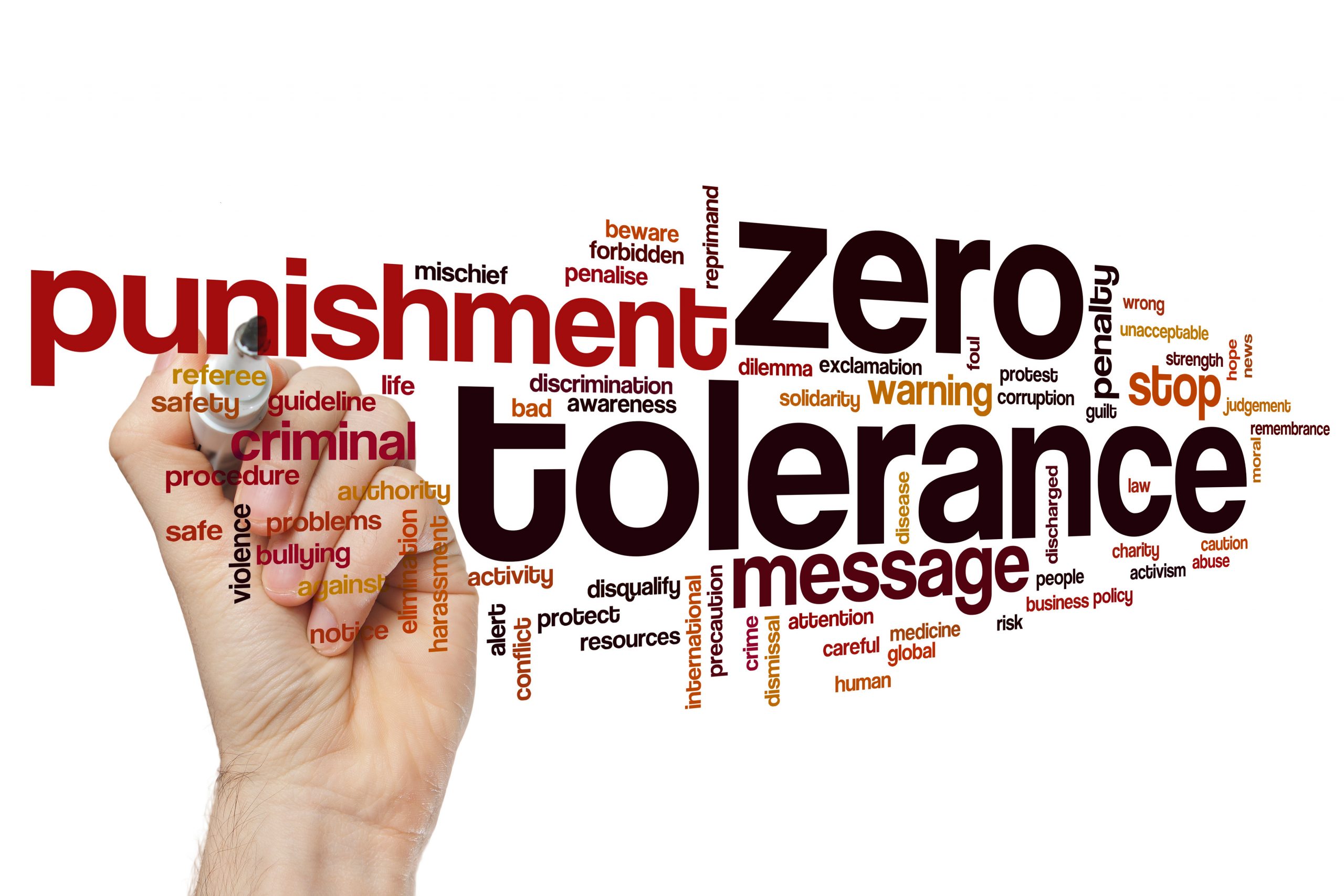Domestic Violence: Do Zero Tolerance Policies Go Too Far?

Blog by Arun S. Maini
Have zero tolerance policies gone too far?
Every few weeks we hear or read about a tragic case where a woman is murdered by a former lover, or kids are abducted or killed by an embittered and alienated father. The response is always to demand tougher “law and order” policies to make sure that such a tragedy “never happens again”. Don’t release the suspect on bail; keep a database of offenders; train police and prosecutors to notice “red flags”; offer more protection to victims; get tougher on offenders.
The reality is that all of these strict measures are in place and have been for many years. Everyone in the justice system, from police to prosecutors to social workers, judges and defence lawyers, are trained, experienced and aware of the problems of domestic violence, and the zero-tolerance approach. But at a certain point, just ratcheting up the harshness and scope of these policies can start to be counter-productive, and can even prevent the most vulnerable victims from getting the help and attention their case needs.
How did we get to this point? What can be done?
Domestic violence is a serious problem in our society, which, until about 25 years ago, was not given the attention by police and prosecutors that the issue deserves. There was a outdated and unrealistic sense that what took place within families or behind closed doors at home was a private matter.
No longer. For the past 25 years, in response to growing societal awareness of the scourge of domestic violence, government has passed laws and implemented policies and training to focus on victims and their needs, and to deter, punish and treat abusers.
In Ontario, when a person tells police that they have been assaulted or threatened, the suspect will be apprehended and charged with a criminal offence. A “No Contact” order will be imposed, and he will not be permitted to return home or speak with the complainant for the duration of the case (or at minimum several months until the defendant agrees to take responsibility for his violent behaviour).
These “zero tolerance” policies are universal. If you call police and report an assault or threat, the other party will be arrested, removed from the home (if you live together) and forbidden to talk to you. The case will be handled by a specialized team of trained prosecutors whose policies require that they seek a criminal conviction.
All of this is done to address violence at home and within relationships, with the best intentions. But “one-size-fits-all” policies often have unintended consequences. Here is a partial list:
- Because charges are laid in almost every case, the courts are packed with “minor” domestic cases (first time offenders, no injuries). The vast majority of them will not re-offend. Yet because all cases are treated as being serious, these cases take up a lot of court time and attention of police and prosecutors, meaning that they have less time to identify and focus on the more high-risk cases.
- In most cases, a wife or girlfriend calls police because she wants police to calm her partner down or de-escalate the situation in that moment. They do not want the police to haul the man away in handcuffs and bar him from all contact between them for several months or longer, until he either pleads guilty or goes to trial. By doing so when it is not necessary, the parties are deprived of being able to communicate with each other when they most need to be able to do so, harming relationships and families. (Of course women get charged too, and men can be victims. But the vast majority of cases tend to involve female victims and male offenders).
- In most cases where the complainant, despite the incident, still wishes to reconcile with her partner and work on their problems, the zero-tolerance policies will prohibit them from doing so, regardless of what the complainant wants, and regardless of the impact on their relationship or their finances (when the defendant is forced to move out and rent a new place for several months, or loses his job as a result of the charges, it is often not just him but complainant as well who suffers). If she contacts the police or the Crown to ask that charges be withdrawn or the No Contact order lifted, she is often threatened with criminal charges or treated harshly for daring to question the zero-tolerance policy.
- When police or prosecutors fail to listen to the wishes of women who do not want their partner removed from the home or saddled with a criminal record (the zero-tolerance policies assume that these women are too weak or vulnerable to be able to decide for themselves whether they wish to have continued contact with their partner), what does that do to their view of the justice system? It simply discourages them from calling the police next time. That is not a consequence intended or foreseen by the government, because it goes against their wish to encourage more women to come forward. But it is a very real consequence of treating every case the same way.
The reality is that very often the tragic outcomes occur in cases where the perpetrator did not have a criminal record, and was not on a list of high-risk suspects. All the policies in the world would not have prevented some of these deaths. A person who is determined to kill their former domestic partner is not going to stand down because of a No Contact order or a bail condition.
So what is the solution?
No one is suggesting going back to the old days where women were treated as the property of their husbands, and what happened behind closed doors stayed that way. Flagging and prioritizing domestic violence is an essential element or preventing and deterring this kind of insidious behaviour. But to do justice to the most needy victims, to make sure those most vulnerable and most at-risk get the attention and the help they need, there has to be more discretion given to police and prosecutors, who are more educated and trained in these issues than ever before, to determine which cases need to be prioritized and flagged for special attention. Listen to complainants and what they want and need: don’t just assume they are weak and in need of the most drastic protection the government can provide.
People and their relationships are complicated and as diverse as the individuals that comprise them. They deserve government policies that address them as human beings, not as numbers or statistics. Yes it’s complicated, it takes time and resources which are in limited supply. But surely the goal of nurturing and protecting human relationships is a goal worth putting the time, money and effort into.
These steps won’t prevent every future tragedy; nothing can. But they will ensure that the system works better for everyone.
Arun S. Maini is a criminal lawyer and former prosecutor with 25 years of experience
If you or a loved one are facing criminal charges and need the advice of an experienced and skilled lawyer to help you through the legal process, call The Defence Group for a free consultation at 877-295-2830.



